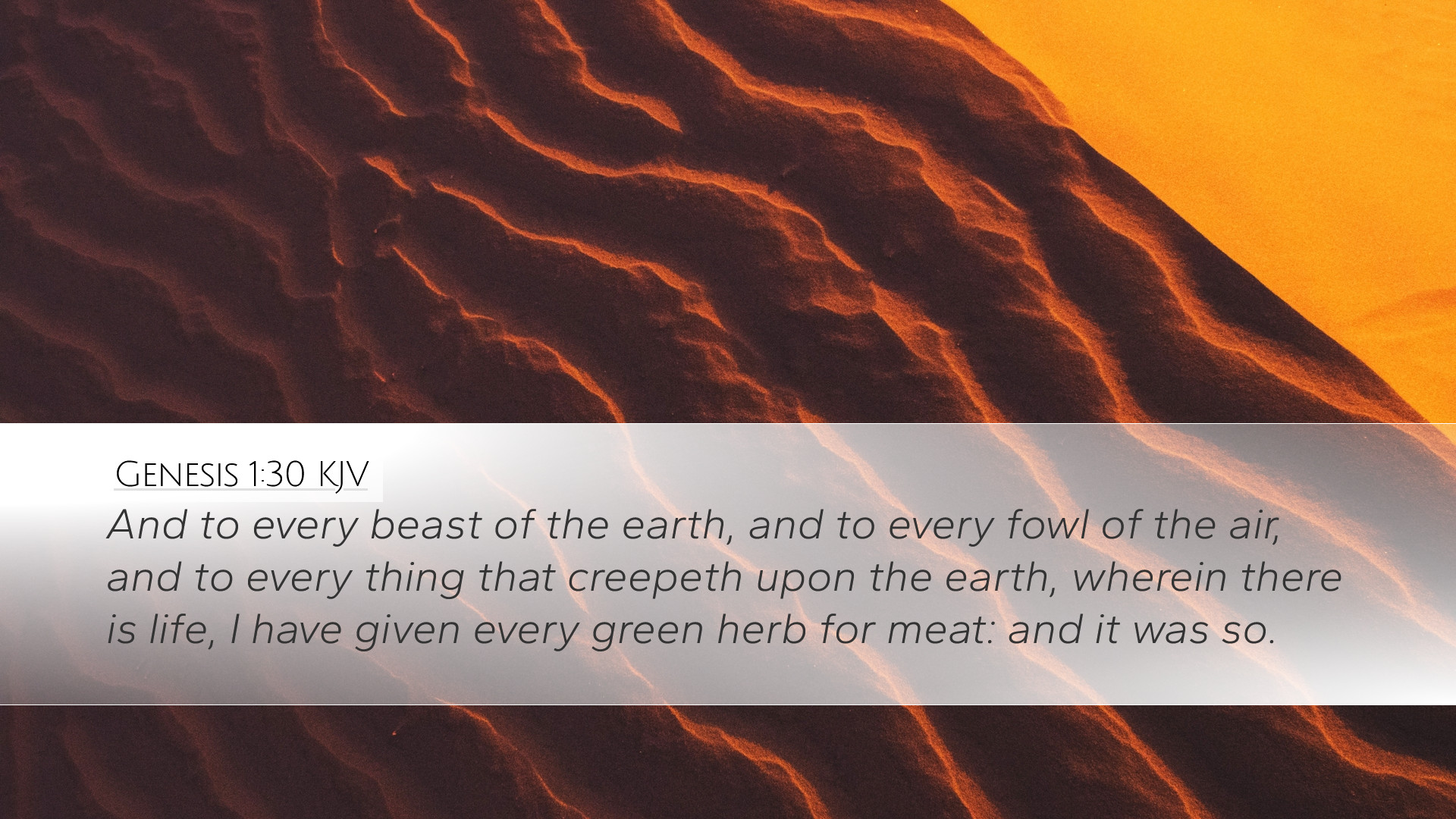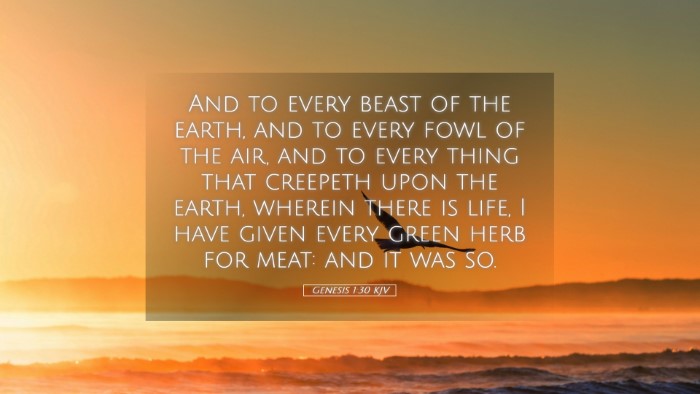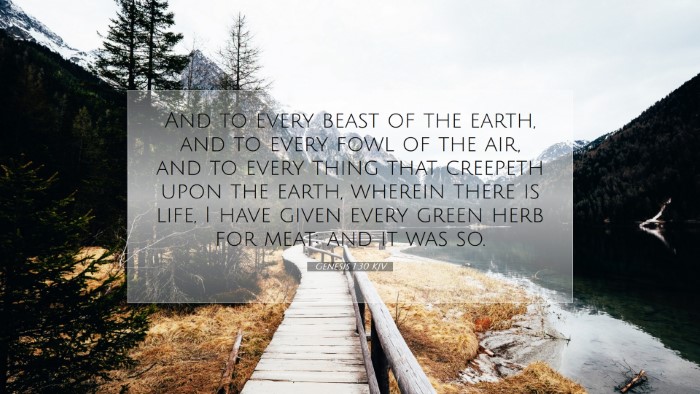Commentary on Genesis 1:30
Genesis 1:30 states:
"And to every beast of the earth, and to every fowl of the air, and to every thing that creepeth upon the earth, wherein there is life, I have given every green herb for meat: and it was so."
This verse concludes the creation narrative of Genesis chapter one, where God delightfully affirms His provision for all living creatures. The commentary below synthesizes insights from several public domain commentators.
1. Divine Provision for Creation
In this pivotal verse, we witness God's generous heart as He caters to the needs of all His creatures. Matthew Henry emphasizes this specificity in God's care, noting:
"God has provided for every creature, not only for man, whom He made in His image, but also for the beasts, the birds, and all that creepeth. This illustrates the divine order of creation wherein every part is essential."
Here, Henry's observation highlights the interconnectedness of life. God's provision extends not only to humankind but encompasses the entirety of creation.
2. The Role of Green Herbs
Albert Barnes points out the significance of "every green herb" as a sustenance source:
"The green herb signifies the natural food chosen by God for animals; it reflects His wisdom in creating a balanced ecosystem where each creature is given what is necessary for survival."
This remarkable detail showcases God's understanding of nature and life's necessities. The term "green herb" connotes vitality and nourishment, reinforcing the theme that God is the ultimate provider.
3. Life and Its Sustenance
Adam Clarke discusses the implications of life as mentioned in the verse:
"The phrase 'wherein there is life' implies a divine recognition of the value of life itself. God’s provisions are aligned with the principles of vitality; thus, He assigns a role for every living being."
Clarke’s commentary allows us to understand that God’s gifts are not arbitrary but are given according to His intention for life to thrive. This acknowledgment of life's worth invites theological reflections on stewardship and our responsibilities toward our fellow creatures.
4. The Interconnectedness of Creation
-
Connectivity of Species: The verse establishes a framework in which animals, birds, and creeping things share a mutual dependency on God's provision. This reality stresses the importance of ecological balance, a theme revisited throughout scripture.
-
The Holistic Perspective: Each element in creation plays an integral part in the ecological web. This verse challenges humanity to recognize its place within God's order and the need to protect all forms of life. Matthew Henry elaborates, stating, "The beasts of the earth and the fowls of the air are all sustained by divine mercy."
5. Theological Implications
The implications of Genesis 1:30 extend far beyond immediate sustenance. Theologically, this verse paints a picture of God as a caregiver and provider. It reveals His commitment to creation's flourishing:
"In the provision of green herbs, we see the foreshadowing of God's redemptive plan, where His providence culminates in Jesus Christ, the bread of life, who provides spiritual sustenance," notes Barnes.
5.1. Environmental Stewardship
This verse offers a foundation for understanding our mandate as stewards of creation. Acknowledgment of our role as caretakers invites introspection regarding environmentalism, conservation, and the ethical treatment of animals:
"To deny the weight of responsibility toward the earth is to unravel the fabric of God's created order," warns Clarke, urging believers to take an active role in preserving creation.
5.2. God's Sovereignty
Moreover, the acknowledgment that God has given every herb for meat testifies to His sovereignty. Clarke points out:
"The very structure of existence reveals God's authority and purpose. His Word creates order where chaos could reign, highlighting His sovereignty over all creation."
This understanding encourages both humility and reverence in how believers approach God's creation, recognizing that all provision is a gift from the Creator.
6. Conclusion
In conclusion, Genesis 1:30 encapsulates key theological themes of provision, stewardship, and God's intimate relationship with creation. Each commentator furthers the understanding of God’s unending generosity while challenging humanity's role in maintaining the divine order. As stewards of God's creation, it is essential for pastors, students, theologians, and Bible scholars to reflect on this verse, not only in the context of personal faith but also in the communal and ecological responsibilities bestowed upon them.
This encapsulation of Genesis 1:30 offers vital insights for understanding God’s compassionate character and His purposeful creation, encouraging a thoughtful and responsible engagement with the world.


